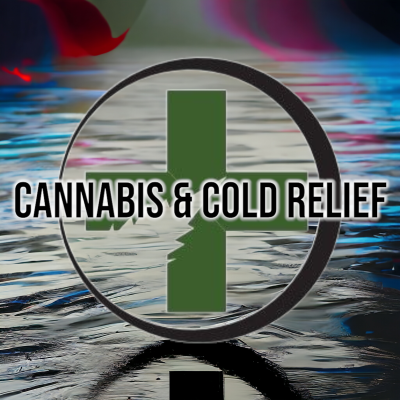Cannabis and Cold Relief: Exploring the Potential Benefits and Risks

Cannabis and Cold Relief: Exploring the Potential Benefits and Risks
Cannabis, known for its psychoactive properties, has been a subject of medical research and debate for its potential therapeutic benefits. One area that has garnered interest is the use of cannabis in treating symptoms of common illnesses like colds and the flu. This blog explores the current understanding of cannabis's effectiveness against cold and flu symptoms, its potential risks, and what future research may reveal.
Understanding the Common Cold and Flu
The common cold and flu are viral infections affecting the respiratory system. Symptoms include coughing, sneezing, sore throat, fever, and fatigue. While over-the-counter medications are commonly used for relief, some individuals seek alternative treatments, including cannabis.
Cannabis: Composition and Effects
Cannabis contains various compounds, with THC (tetrahydrocannabinol) and CBD (cannabidiol) being the most notable. THC is known for its psychoactive effects, while CBD is non-psychoactive and associated with potential therapeutic benefits.
Potential Benefits of Cannabis for Colds and Flu
-
Pain Relief: Cannabis has been recognized for its analgesic properties. THC and CBD may help alleviate headaches and body aches associated with colds and flu.
-
Anti-inflammatory Effects: CBD, in particular, has shown anti-inflammatory properties, which could help reduce swelling in the nasal passages and relieve congestion.
-
Sleep Aid: Cannabis is known to aid in sleep, which can be beneficial for individuals struggling with rest due to cold or flu symptoms.
-
Appetite Stimulation: THC can stimulate appetite, helping those who have lost their appetite due to illness.
Risks and Concerns
-
Immune System Interference: There is ongoing debate about cannabis's impact on the immune system. Some studies suggest it could suppress immune function, potentially prolonging the duration of colds and flu.
-
Respiratory Irritation: Smoking cannabis can irritate the respiratory tract, exacerbating coughs and sore throats.
-
Psychoactive Effects: The psychoactive effects of THC can be disorienting, particularly for new users or those with certain mental health conditions.
-
Legal and Regulatory Issues: Cannabis's legal status varies by region, and self-medication without proper guidance can lead to legal complications.
What Research Says
Current research on cannabis's effectiveness against cold and flu symptoms is limited. Most evidence is anecdotal or based on studies related to its general anti-inflammatory and analgesic properties. More specific research is needed to determine its direct effects on cold and flu symptoms.
Alternative Treatments and Precautions
While exploring cannabis as a treatment option, it's essential to consider other proven methods like hydration, rest, and over-the-counter medications. Consulting with a healthcare professional is crucial, especially for those with pre-existing conditions or who are taking other medications.
The Future of Cannabis Research
The growing interest in cannabis's medical applications promises more comprehensive research in the future. As laws and attitudes towards cannabis evolve, more data will become available, providing clearer insights into its role in treating common illnesses like colds and flu.
Conclusion
While cannabis shows potential in relieving some symptoms of colds and flu, its effectiveness and safety are not fully understood. The decision to use cannabis for cold and flu treatment should be made cautiously and in consultation with a healthcare provider. As research progresses, we can expect more definitive answers regarding cannabis's role in treating these common ailments.
